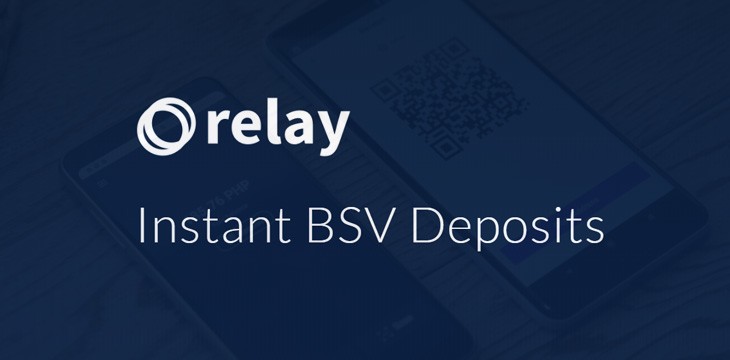|
Getting your Trinity Audio player ready...
|
Relay has announced a new service designed to provide fast, zero-confirmation Bitcoin transactions called Relay Instant. At launch, users of the RelayX wallet, Money Button and Relay’s ONE button in several countries can send BSV deposits to FloatSV and OKEx in under two minutes.
Speaking to CoinGeek, Relay founder Jack Liu said the solution doesn’t require any “fancy tech” for now—instead, it swaps users’ Bitcoin for funds already confirmed and deposited at the exchanges.
He said testing showed deposits confirmed in “under two minutes all of the time.” RelayX wallet users can “favorite” FloatSV and OKEx accounts in their settings and send funds natively from the app. ONE button and Money Button users can visit instant.relayx.io, enter their exchange account details, and pay using the buttons.
According to its website, Relay Instant takes a 0.3% fee for the service. It’s available to all users of the two exchanges except those in Hong Kong, Cuba, Iran, North Korea, Crimea, Sudan, Malaysia, Syria, U.S., Bangladesh, Bolivia, Ecuador, and Kyrgyzstan.
Why traders need faster exchange deposits
Many exchanges require way more than the usual “safe” number of block confirmations for BSV deposits, something Liu called “a widespread ill-warranted fear about the safety of transactions on the BSV chain.”
At lowest that’s about 10 confirmations (on an exchange we tested) though Liu said some regularly require 50 to even 72. For BSV traders whose aim is to get coins to an exchange as quickly as possible to take advantage of sudden volatility, they risk missing the action.
Even regular users who aren’t active traders may want to send funds to an exchange quickly, to capitalize on price highs without having to watch them slump again during the longer confirmation waiting time.
Leaving large amounts of money in an exchange wallet for availability isn’t (or shouldn’t be) a better option. Users risk not only security lapses at the exchange, but also the threat of phishing attacks—and there’s no 100% guarantee losses will be covered, no matter who’s to blame.
Therefore, the ability to move funds in and out of the exchange for storage in wallets you manage yourself is sorely needed.
Why not SPV?
Liu said most of the “native BSV ecosystem” already perform zero-confirmation transactions, but “It is the traditional crypto exchanges who have this misunderstanding of BSV who are slow.”
This helps to answer why Relay Instant employs a more low-tech solution to the problem for now, rather than trying to develop a system based on simple payment verification (SPV).
SPV has been a hot topic in the BSV community lately. It is described in the original Bitcoin whitepaper as the best and most secure way to make fast payments, but to date has rarely (if ever) been deployed. Dr. Craig Wright last month called again for services to make use of the technique, sparking several debates as service providers offered various reasons for not doing so.
Liu explained SPV wasn’t an option for Relay Instant just now, but hoped introducing fast deposits to select exchanges would spur others to compete.
We can’t control the policies and technology of exchanges around the world. What we believe is likely to happen is that as services start offering zero confirmations, naturally other competing exchanges will have to adopt methods to also offer 0 confirms. That may be SPV-based solutions for sure.

 02-21-2026
02-21-2026 




